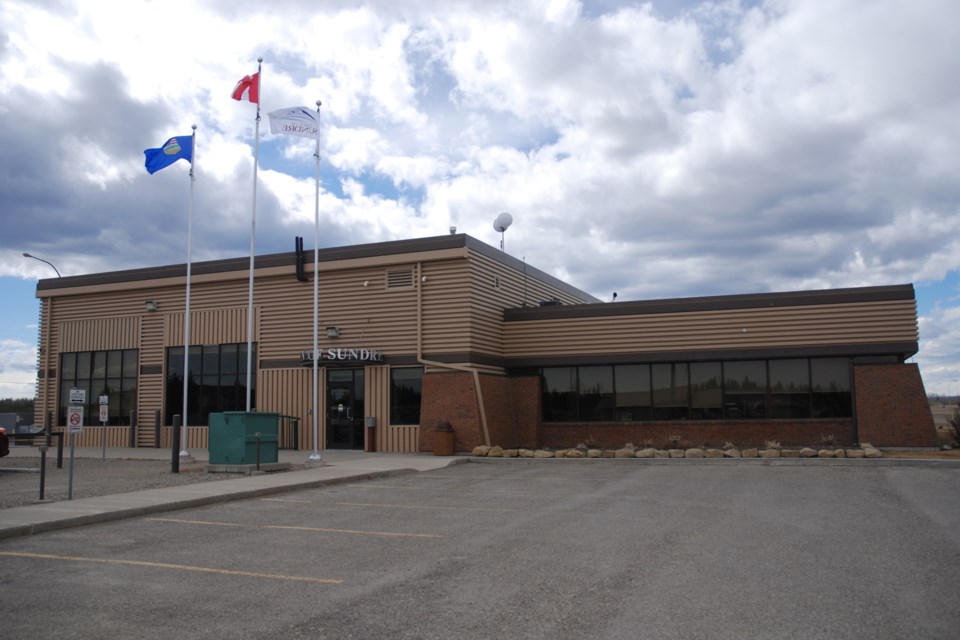SUNDRE – Although the Town of Sundre's administration is not anticipating any immediate financial impact in the fallout of the U.S. government’s trade tariffs, long-term ripple effects could nevertheless manifest in the form of higher inflation.
For the time being, the trade tariffs situation does not seem to present any major concerns in terms of sudden cost increases for the municipality.
“We’re kind of fortunate in the aspect that for 2025, we don’t have a large capital project on the books,” said Chris Albert, director of corporate services.
Last year, the municipality struck a major capital project off the priority list when work to upgrade underground infrastructure along the Highway 27-Main Avenue corridor was completed.
“With Highway 27 being done, we’ve kind of deferred our construction projects for a year. So, we don’t really have that the impact from that,” he said, adding the municipality’s operating budget is otherwise primarily related to services and salaries.
“We don’t have a huge component that would be impacted by tariffs,” he said.
However, that doesn’t mean the municipality won’t eventually feel some ripple effects.
“That being said, tariffs being across the board as they are, they’re going to impact all kinds of things the same as inflation does,” he said.
“We kind of consider it a really similar aspect, in that your general costs are going to go up across the board,” he said, adding the uncertain nature of the tumultuous situation effectively makes predicting anything impossible.
In terms of what the municipality purchases from the U.S. – whether products, materials or services – that would see increased costs in 2026 and 2027 if tariffs remain in place, he said, “The biggest things I think that would affect us kind of past 2025, is going to be the vehicles; vehicles are going to be a concern.”
But even on that front, the municipality does not expect to feel the brunt of tariffs, at least in the short-term.
“We’re actually quite fortunate because we’ve gotten most of our fire equipment – our big pumper – we got that finished last year, and that comes out of the U.S.,” he said.
“We’ve got a couple of other units that are currently in the build process, and those typically come out of the U.S. as well,” he said. “But those are all existing contracts, so those aren’t affected by the ongoing tariffs.”
Yet there could still be an indirect impact on future infrastructure projects in 2026 and beyond if the situation persists.
“It kind of depends on where the tariffs fall,” he said. “There is that potential where whatever contractor we hire to do the work is sourcing some of their product from the U.S.”
When the time comes to tackle the next major capital project, those variables will have to be factored into scoping up the project to figure out what the impact on costs might be, he said.
“We’re not focused specifically on tariffs. Unfortunately, to the municipal finances tariffs is an inflationary item, and that’s where more where it affects us.”



